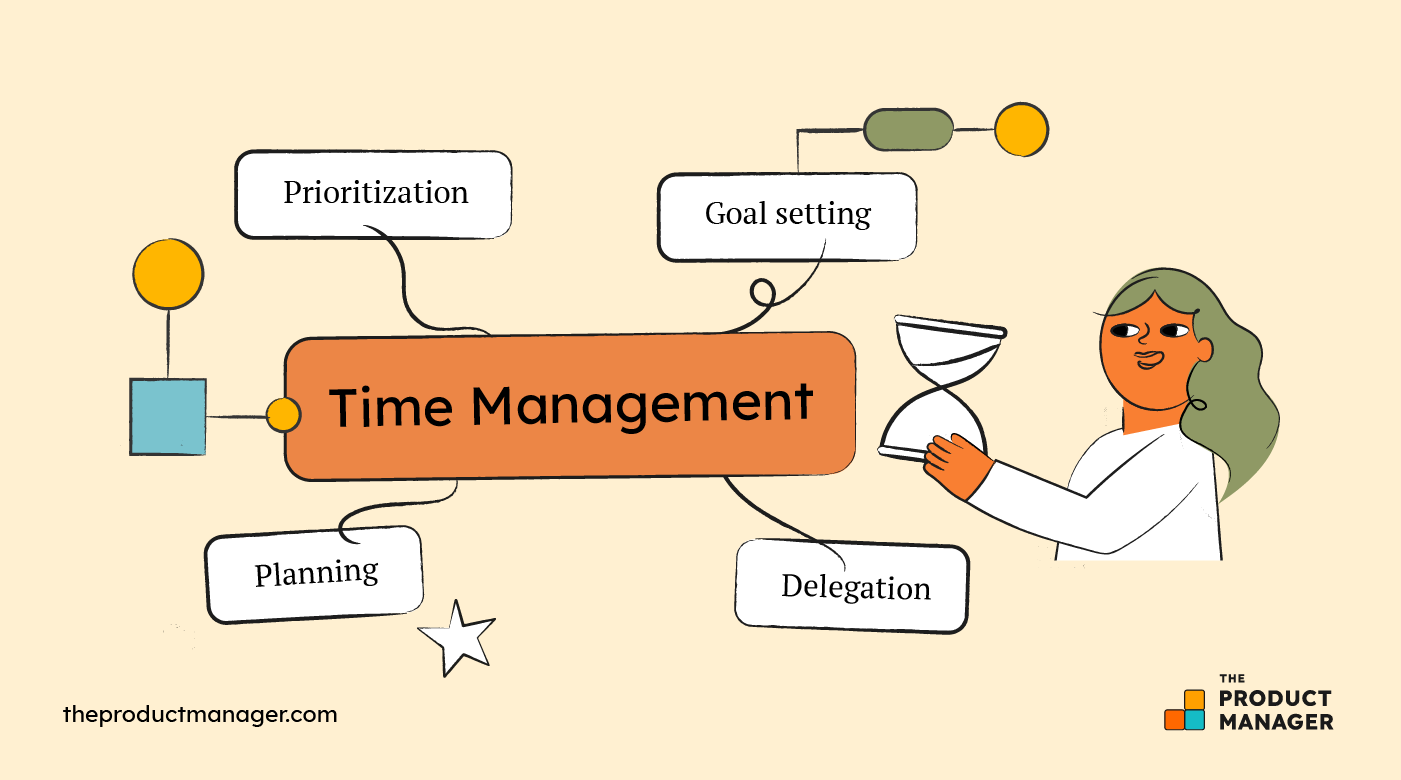What is an Associate Product Manager?
An associate product manager (APM) supports the work of product managers by conducting market research, gathering quantitative product data, and analyzing customer research to help product managers work more efficiently and effectively. Associate product managers might also work on new products, features, and various product strategies to support more senior product managers.
Whether you are planning to work your way up to a senior product manager or a more specialized position such as a product marketing manager, an associate product manager is the perfect position to start with.
What Does an Associate Product Manager Do?
Often, associate product managers will work on new features for an already established product rather than working on completely new products. They can focus on a select area of the product, or a specific set of ideas and features, without being drawn into the full scope of the product.
Associate product manager responsibilities may include:
- Collecting and interpreting product analytics data to help improve and iterate on product features
- Conducting user research
- Educating internal team members on product features and benefits
- Supporting the product marketing team
- Assisting more senior product managers as needed
- Analyzing consumer research data and update team on findings
The Importance of an Associate Product Manager Position
Companies hire APMs to make sure they can attain good talent early on. It's highly beneficial for companies to hire someone with relevant education, such as through an associate product manager program, that can gain company experience and grow with the company.
The new APM can fit into the organization easily and learn their vision, goals, and requirements without having to unlearn previous mindsets and goals.
This also allows more junior talent to learn how the company would like things done. They can work closely with a senior product manager to learn, enhance, and use skills learned in school, as well as skills learned after joining the product development team. Experience is a quick way to establish good company work habits.
Associate product managers can also fill a role when a product manager gets overwhelmed. The workload may not need two full-time product managers, so an associate can help cover off the excess, which eases the workload and budget constraints.
The associate product manager is a great learning role that doesn’t come with the pressure and stress of being the go-to product manager. Associates get guidance and mentorship while still gaining experience and moving along their career path as a product manager. This opens the door to eventually becoming a product manager with a team of their own.
Associate Product Manager Salary
Salaries for any position are never black and white. There are always some gray areas depending on the company pay scale, job description, location of the company, industry, and the applicant’s experience.
Areas where the cost of living is higher, such as San Francisco or New York, tend to pay more for the position, as do more mature companies. Salaries often strike a balance between these factors.
Associate product managers will be paid less than product managers as they have reduced responsibilities and tend to come to the job with less experience. Salary for an associate product manager averages around $82,000 per year, plus benefits and bonuses.
Preparing for the Role
Preparing to apply for the associate product manager role is similar to preparing an application to be a more senior product manager. Learning relevant skills and qualities early will help you succeed. Here are some of the most beneficial skills:
Communication skills
These are critical to have on your product management resume as they are necessary for team building, managing, and scheduling. Strong interpersonal skills will help lead the product management team, keep team members on track, and manage the team when there is a need to work cross-functionally. Specifically, you'll want to focus on:
- Active listening: This one is absolutely critical! Practice this by using the phrase: "Let me make sure I understand" and repeating the information back to the speaker.
- Verbal communication: Try asking for feedback from friends and colleagues to improve this skill.
- Written communication: Editing tools like Grammarly can be helpful for improving the clarity of your written communication.
- Conflict management techniques: Embrace the advantages of conflict by developing your ability to mediate and find creative ways to move forward.
- Documentation skills: A part of being a great communicator is finding ways to make information available to everyone who needs it. Great product managers are diligent about documenting information, keeping it organized, and communicating to others where to access it.
- User interview skills: A user interview feels like a conversation, but collecting user feedback in an interview setting is actually a skillset of its own.
- Saying 'No': Get comfortable with this one—you'll need it.
Analytical Skills
Market research is a primary responsibility of an associate product manager. Strong analytical skills allow an APM to assess new ideas and features for products. They also help you work to improve the user experience for established products. Analytical skills are also useful in finding trends and conducting testing. Some specific areas to focus on include:
- Gathering data: You need good quality data before you can analyze it! Try familiarizing yourself with the best product analytics tools on the market to see what kinds of data you can collect and how.
- Data literacy: A data literacy course can be a game changer for learning how to read data, interpret it, and arrive at useful conclusions.
- Problem-solving: Data can often reveal the nature and severity of a problem. A key aspect of analytical skills is not only digesting this information but also using it to propose creative, data-backed solutions.
Time Management
Meeting deadlines is a skill that will keep you and your team on track throughout the product life cycle. The workflow of the product team is interconnected, so if one deadline is missed, other deadlines shift as well. Poor time management will negatively affect not only one team's schedule, but the whole scope of work to be done. The most critical skills to focus on include:
- Prioritization: Since a big part of your job as a product manager will involve feature prioritization, it's essential to develop strong prioritization skills.
- Goal setting: Setting goals and benchmarks toward your goals is a skill you can start building today that will set you up to be a proactive PM.
- Planning: Product managers are bound to the product roadmap, which is effectively a living, long-term plan for the product's future.
- Delegation: The best way to avoid bottlenecks is by learning how to use your resources effectively!
Technical Skills
Even if you're at the beginning of your product management career, it's never a bad idea to look into some of the different product management specializations you might be interested to pursue later on. Some specializations, such as data product management, will have a much heavier on technical competencies such as programming language skills. These skills are a 'nice-to-have' in traditional product management versus technical product management, but may be critical later as your career evolves. Some great technical skills to start with include:
- Fluency in programming languages: Namely SQL, Python, M, Java, JavaScript, and Swift
- Facility with product management software: Most product managers use a lot of tools in their daily role. It'll serve you well to get familiar with some of the best product management tools on the market. (Plus some ways to make the most of your product stack!)
- Usability testing skills: There are many forms of usability testing that can yield critical insights for product teams.
- Product development frameworks: Most SaaS product teams use the Agile development methodology. Learning the basics will definitely help you land your first PM gig!
Other Useful Skills
Decisiveness
The ability to make quick, informed decisions is a great skill when it comes to product requirements, the product vision, or product launches. Dithering over an answer can affect timelines and how the product advances through the product roadmap.
Adaptability
The ability to learn and pivot based on past mistakes and experiences with customers, engineers, and other people involved in the process is critical. There are always adjustments to the product roadmap along the way. Pivoting to account for changing needs or requirements is crucial to a successful launch.
These skills are both personal and learned. While they may be inherent in certain individuals, you can acquire and upgrade these skills through education and product management training.
If you're aiming to be an associate product manager, it's likely that you recently completed school with a bachelor's degree in computer science, business, marketing, or another business-related field.
Having some or all of the skills above will make it easier for you to get hired. However, if you cannot find a job right out of school, there are other ways to get into the field.
Associate Product Manager at Google
An internship gives you skills and experience on top of the education you already have.
Finding a job is not always simple, but companies like Google often offer product management internships. These might lead to an associate product manager job with the company later down the road as you move further up the corporate ladder.
Google, along with Facebook, Slack, and other companies, are great for those who want to get established in the product management field.
Not every company will be perfect for your career path, but will still provide valuable experience, even if it's just an internship.
While internships can be competitive, especially at a company like Google, the effort is worth it. Getting your foot in the door as an intern will offer an outstanding learning experience.
Associate Product Manager Interview Questions
Once you have the education, relevant skills, and perhaps an internship under your belt, the next step is to find a job that fits on your desired career path. Once you've secured an interview with your stellar resume and cover letter, it's time to prepare for the interview questions.
Before the interview, get an idea of your specific goals and career path, as the interviewer is likely to ask about them. You want to show your willingness to learn, eagerness to excel, and the ability to deliver strong and useful products.
Prepare for interviews by thinking through potential questions and answers. Read blogs and find information on others who have been down the same path. You can never be over-prepared for an interview.
Research the company as well as trends and patterns in their industry to impress the interviewer before heading in. Highlight your product management knowledge, while letting your personality and enthusiasm play a part in getting you the job.
Hard skills are of course relevant and necessary, but soft skills and being personable will play a role as well.
Final Thoughts
Starting your career as an associate product manager is a great way to jumpstart your career in the product management field.
The position can offer opportunities to be a product manager or specialize in a specific area of product management that you find engaging. The odds substantially increase when you join a company as an associate, as the opportunities for more senior positions may come to you before jobs are posted externally.
The keys to becoming an associate product manager include education in the product management field, the right mix of hard and soft skill sets, and meeting challenges head-on to show an employer you are ready and willing to work hard. They want to see a desire to work both for the betterment of the company and yourself.
Always stay on top of the current markets and trends so you can use the associate position as a launchpad for further career advancement.
Subscribe to The Product Manager newsletter to get the latest in your inbox!
Related:







